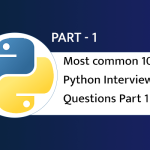In business, two prominent fields, Business Analytics and Business Analysis, stand out as critical components driving informed decision-making and organizational success. As professionals contemplate their career paths, the choice between these two areas can be pivotal. In this blog, we’ll delve into the distinctions between Business Analytics vs Business Analysis, exploring the nuances that make each field unique. Whether you’re drawn to deciphering data trends or revel in the intricacies of business processes, understanding the differences is key. We’ll also touch upon the significance of Business Analysis Courses, equipping aspiring professionals with the skills needed to thrive in these dynamic domains.
Table of Contents
- Business Analytics vs. Business Analysis
- Nature of Work
- Focus on Data
- Decision-Making Impact
- Skill Sets
- The Role of Business Analysis Courses in Career Development
- Conclusion
Business Analytics vs. Business Analysis
Let’s explore the difference between Business Analytics vs. Business Analysis:
Nature of Work
Business Analytics: Business analytics experts sift through mountains of data, searching for patterns and trends. They use algorithms for machine learning, predictive modelling, and statistical analysis to aid in making strategic decisions. Organisations rely on business analysts to help them achieve a competitive advantage by turning raw data into actionable insight.
Business Analysis: Business analysts, on the other side, focus on learning about company requirements and finding ways to meet those demands. To ensure that IT solutions align with business goals, they mediate between stakeholders and IT departments. To improve effectiveness and efficiency, business analysts examine processes, collect needs, and help with communication.
Focus on Data
Business Analytics: Collecting, processing, and analysing data to uncover relevant trends and patterns is the main emphasis of business analytics. Data scientists in this area are experts in using R, Python, and SQL to analyse datasets and draw conclusions.
Business Analysis: Even though business analysts work with data to a certain degree, their main goal is comprehending the company landscape. They collaborate closely with stakeholders to assess workflows, record procedures, and find ways to enhance them.
Decision-Making Impact
Business Analytics: Strategic decisions are often the ones that feel the effects of business analytics. Experts in this area use data-driven trends and predictions to sway top-level decisions and steer the company on the right path.
Business Analysis: Business analysts help with decision-making by checking whether digital solutions help achieve company objectives. Their influence is mostly operational, emphasising process optimisation and increasing overall organisational efficiency.
Skill Sets
Business Analytics: A business analytics job requires strong data visualisation, machine learning, and statistical analysis skills. A solid foundation in mathematics and computer science is often required to thrive in this industry.
Business Analysis: Possessing strong organisational, problem-solving, and communication abilities is essential for business analysts. Although they deal with data, their main goal is comprehending company requirements and turning them into practical strategies.
The Role of Business Analysis Courses in Career Development
Investment in education becomes a smart decision for career progression as the need for trained individuals in Business Analytics and Business Analysis continues to increase. A well-organised course in business analysis will teach you the basics of the field. To provide future business analysts with the skills necessary to succeed in their careers, these courses include subjects including stakeholder management, process modelling, and demand elicitation.
Those interested in a career in data-driven business analytics may acquire the necessary skills by taking specialised courses in data visualisation, machine learning, and statistical analysis. Participants can apply what they learn in these classes to real-world situations via case studies and hands-on projects.
The key to being relevant in the ever-changing domains of business analytics and business analysis is ongoing learning, whether you’re considering making a career change. By enrolling in business analysis courses, professionals may improve their technical knowledge and soft skills, which are essential for successful communication and teamwork.
Conclusion
Your interests, strengths, and long-term goals should guide your decision between a job in business analytics and one in business analysis. Consider a career in business analytics if you find great satisfaction in using your analytical skills to help shape important company decisions. On the other hand, business analysis may be the ideal profession for you if you take pleasure in learning about companies’ inner workings, collecting needs, and finding ways to improve operations.











